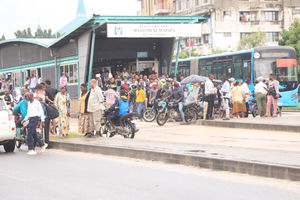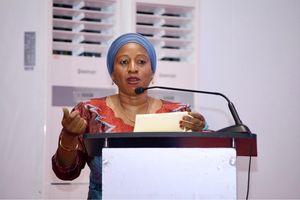Telcos ordered to complete listing on bourse in 3 days

The Minister of Works, Transport and Communications, Prof Makame Mbarawa, addresses journalists in Dar es Salaam yesterday. PHOTO | MINISTRY OF WORKS
What you need to know:
- The government yesterday ordered telecom companies that are yet to complete the process of listing shares at the Dar es Salaam bourse to do so within three days
Dar es Salaam. Telecommunications companies have only three days to complete the process of listing their shares on the Dar es Salaam Stock Exchange (DSE).
Works, Transport and Communications minister Makame Mbarawa yesterday ordered the telecom companies that are yet to complete the process of listing shares at DSE to do so within three days.
According Prof Mbarawa’s statement, telecommunications companies which were licenced before July 1 this year should abide by the law to list their 25 per cent of shares at DSE before the end of this month.
Under the 2016 Electronic and Postal Communications Act (Epca), December 31 is the deadline for the firms’ listing.
An amendment to a new finance bill requires the eight operators to float 25 per cent of their shares on the bourse.
So far only Vodacom Tanzania and Tigo have prepared their prospectuses for listing at DSE.
Airtel, Tanzania Telecommunications Company Limited (TTCL), Zantel, Benson and Sasatel are yet to do so.
Efforts to get comments from Airtel, TTCL and Zantel officials failed yesterday. Companies licensed after July 1 this year have two years to prepare themselves for listing.
Finance and Planning minister Philip Mpango told the National Assembly that the companies’ listing on the bourse would “help the government trace the exact revenue generated by the firms as well as enable Tanzanians to hold shares”. He denied that the bill was a policy reversal, saying it merely enforced the Epoca of 2010, which stipulated that foreign telecoms companies to list locally.
Vodacom is the market leader though it has seen its subscription market share dropping from 45 per cent in December 2007, 41 per cent in December 2008, 39 per cent in December 2009 before dropping further to 32 per cent in December 2015, according to Tanzania Communications Regulatory Authority figures.




